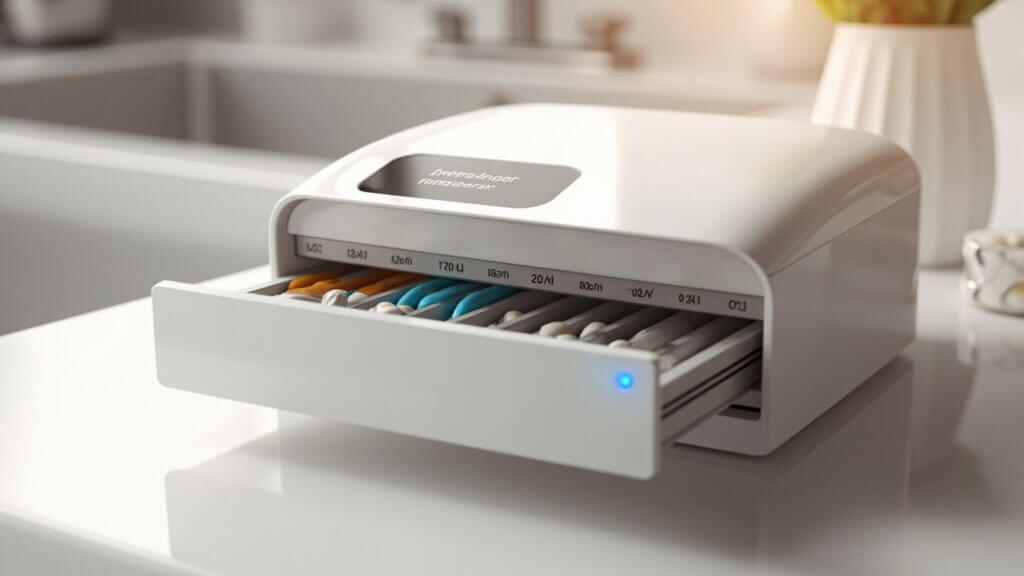Artificial Intelligence isn’t just for techies—it’s quickly becoming a game-changer for seniors. From managing medications to staying connected with family, AI is making everyday life simpler, safer, and more independent for older adults.
This guide explores the top AI tools for seniors in 2025—including the best apps, smart devices, and assistive technologies that actually make a difference in daily living.
Why AI Matters for Older Adults
As we age, certain tasks—like remembering appointments, navigating technology, or managing health—can become more challenging. AI tools are designed to reduce those burdens, while enhancing:
- Independence
- Safety and health monitoring
- Daily convenience
- Social connection
And most are now voice-activated, user-friendly, and built with accessibility in mind.

1. AI Voice Assistants (Alexa, Google Assistant, Siri)
Best for: Hands-free help with everyday tasks
Smart speakers are now easier to use and more helpful than ever. In 2025, voice assistants can:
- Set reminders for meds, appointments, or daily tasks
- Turn lights on/off or control temperature
- Play music, answer questions, or call family
- Alert emergency contacts when prompted
Why it works for seniors: No need to use a screen or remember complex commands—just say it out loud.
2. AI Medication Management Systems
Best for: Staying on top of complex medication schedules
Tools like Hero Health, MedMinder, and EllieGrid use AI to:
- Organize and dispense the right pills at the right time
- Send reminders via voice or smartphone
- Notify caregivers if a dose is missed
Some models even learn your habits and adjust reminders accordingly.

3. AI Health Monitoring Wearables
Best for: Tracking vital signs and detecting emergencies
Smartwatches and wearables in 2025 offer more than just step counting. Tools like the Apple Watch Series 9, Fitbit Sense 3, and CarePredict include:
- Fall detection with emergency alerts
- Heart rate and sleep tracking
- Blood oxygen monitoring
- AI-powered health trend analysis
Bonus: Some can send weekly wellness reports to family or doctors.
4. AI Companionship and Mental Wellness Apps
Best for: Reducing loneliness and staying mentally active
AI chat companions like Replika, ElliQ, or Woebot Health provide:
- Friendly, conversational engagement
- Mental wellness check-ins
- Daily encouragement and emotional support
- Brain games and gentle nudges to stay active
Especially helpful for seniors living alone or adjusting to retirement.
5. AI-Powered Smart Home Systems
Best for: Safety and independence in the home
Devices like Amazon Alexa Together and Google Home Safety Mode allow seniors to:
- Control lights, appliances, and locks by voice
- Set routines (e.g., “good night” turns off lights, locks doors)
- Get alerts for unusual motion or inactivity
- Connect instantly with loved ones or caregivers

6. AI-Powered Reading and Accessibility Tools
Best for: Vision or cognitive support
Apps like Seeing AI (Microsoft) and Voice Dream Reader turn text into speech or describe the world aloud. These are invaluable for older adults with:
- Low vision
- Reading difficulties
- Early cognitive decline
What they can do:
- Read printed text aloud
- Identify people, objects, or currency
- Describe scenes using your phone’s camera
7. AI Language and Communication Aids
Best for: Staying connected or learning new skills
Whether you’re chatting with grandkids across the globe or learning a new language in retirement, AI tools like:
- Google Translate (with live voice interpretation)
- GrammarlyGO for clearer emails
- Wordtune or ChatGPT to help write stories, blogs, or journals
…can keep your communication sharp and enjoyable.
Language AI tools can also help if speech or memory challenges arise.
FAQs About AI Tools for Seniors
Are these tools hard to use?
Not anymore. Most AI devices now use voice, touch, or simple apps designed for older adults. Many come with senior-friendly interfaces and setup guides.
Do I need a smartphone or Wi-Fi?
For most tools, yes—a smartphone or Wi-Fi connection helps devices sync and communicate. But some (like basic AI pill dispensers) work offline.
Are these devices expensive?
Prices vary, but many tools are covered by Medicare Advantage or veteran plans in 2025. Others offer low-cost monthly plans or senior discounts.
Final Thoughts: Technology That Grows With You
AI in 2025 isn’t about replacing people—it’s about supporting your independence, wellness, and peace of mind. Whether you want reminders, entertainment, or an extra layer of safety, there’s an AI tool that can make life easier.
Start with one tool that solves a real challenge.
The goal isn’t to master every gadget—it’s to live more fully, with less effort and more support.
Which AI tool would make the biggest difference in your daily life?
